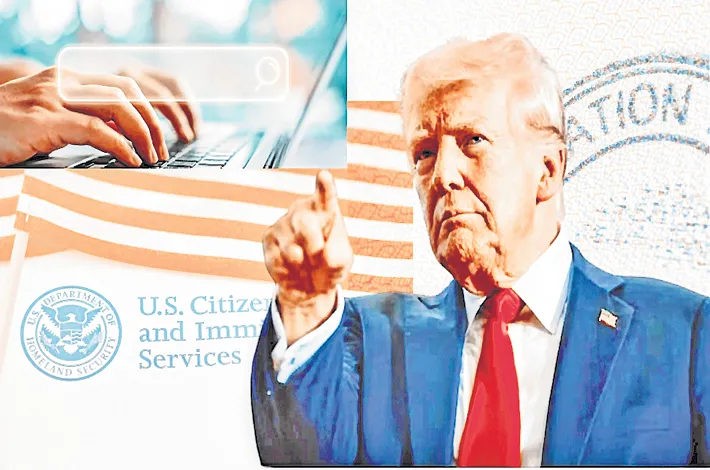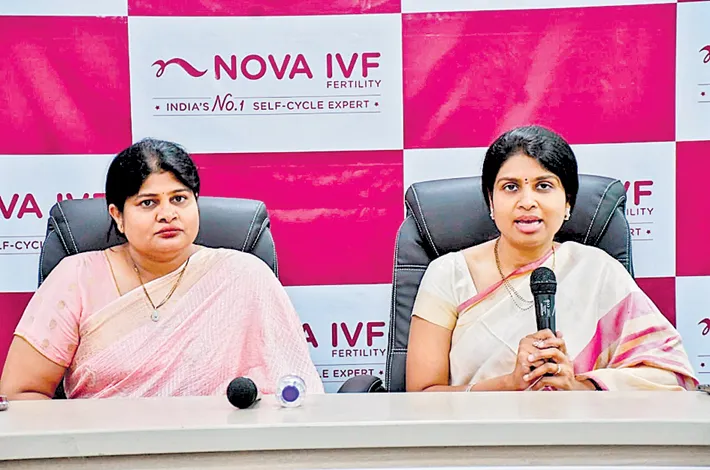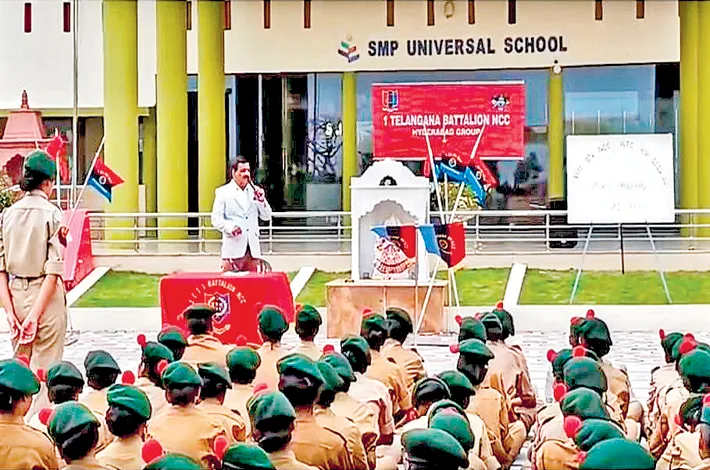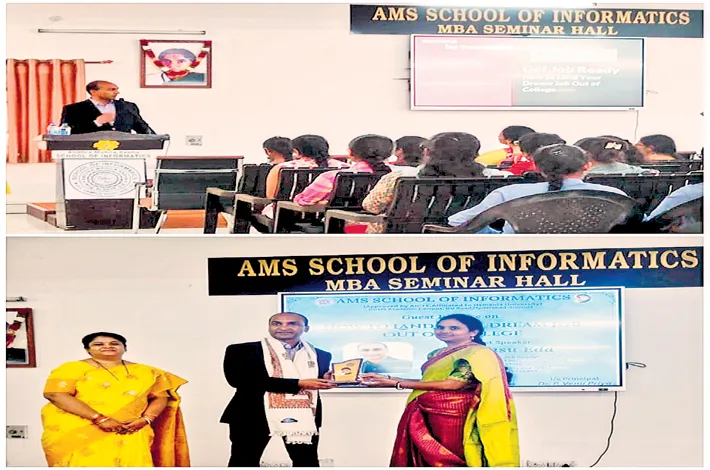TRUMP’S NEW BUNKER BUSTER
23-09-2025 12:00:00 AM

$100,000 H-1B Visa Fee Creates Chaos
US President Donald Trump has unveiled a sharp increase in the cost of sponsoring H-1B visas, a move that has sparked alarm among Indian students and professionals. Under the new rule, American companies will now be required to pay an annual fee of USD 100,000 (approximately ₹90 lakh) for each H-1B worker they employ.
In order to guarantee that only "highly skilled and extraordinary" workers are admitted into the nation, the White House justified the plan. Officials added that the steep fee would help prevent American jobs from being replaced by cheaper foreign labour, while also generating more than USD 100 billion for the US treasury.
“One of the most abused visa systems is the H-1B non-immigrant visa programme,” White House Staff Secretary Will Scharf said. “This will make sure the people companies bring in are actually very highly skilled and not replaceable by American workers.”
Amid the uproar, the White House later issued a clarification to calm concerns. In a post on X, Press Secretary Karoline Leavitt explained that the fee would not apply every year. “This is not an annual charge. Only the petition is subject to this one-time cost. Holders of H-1B visas are permitted to travel and return to the nation as they normally would. Only new visas are covered by this; existing visa holders and renewals are not,” she said.
Student anxiety grows
For thousands of Indian students in the US, the announcement has come as a major blow. Many went to the country on education loans, hoping to secure jobs after graduation and repay their debts.
“When I came to the U.S., the whole idea was to study, get some exposure, then work for a few years, pay back my loan, and help my family. But now with this $100,000 H-1B fee, I honestly don’t think companies will even look at us. Why would they spend so much when they can just hire an American without paying extra? It just feels like we’re not wanted here, and it’s really scary because the future we planned for might not even exist anymore,” said one Indian student pursuing a master’s degree.
Another student added, “What really hurts is how the rules keep changing all of a sudden. When we applied for colleges, it was a different picture. We thought, okay, it’s tough, but at least there’s a path. Now, halfway through, everything has changed. Our families gave up so much for this, and suddenly the future looks like a dead end. It feels like we’re just stuck in the middle with no control over what happens next.”
Education experts also weighed in on the development. “The recent announcement has understandably raised some concerns from students and parents. However, it is still too early to gauge the long-term impact on Indian students wanting to study in the US. It is important to know that the students who are pursuing a U.S. education at the moment will look at H-1B pathways typically a few years down the line, while this proclamation has been proposed for the next 12 months only as of now."
"The U.S. continues to be one of the most popular study abroad destinations for Indian students, particularly in STEM fields, with 4 out of the top 10 universities in the QS World University Rankings 2026. While students may also explore options such as Canada, Australia, the UK, New Zealand, the U.S. is expected to hold its position as a preferred choice for Indian students seeking global exposure and academic excellence,” said Piyush Kumar, Regional Director, South Asia, Canada and Latin America (LATAM), IDP Education.
Some, however, are choosing to look beyond the US. “The U.S. was always the first choice, but it’s not the only country out there. Canada, Australia, even Europe — they’re all attracting talent. If the U.S. makes it harder, maybe it’s a sign we should look around. At the end of the day, skills are in demand everywhere, so I’m trying not to panic too much about this one policy,” said another student.
India reacts cautiously
Indians have traditionally been the largest beneficiaries of H-1B visas, accounting for nearly 71% of all approvals. With the new fee structure, industry experts fear US firms may cut back on sponsoring Indian professionals, especially at the mid-level. The impact could also be felt on green card sponsorships, where Indians already face decades-long backlogs.
India’s Ministry of External Affairs (MEA) said it is closely examining the implications of the move. The Government has seen reports related to the proposed restrictions on the US H1B visa program. The full implications of the measure are being studied by all concerned, including Indian industry,” the MEA said in a statement.
The ministry emphasised that improving US-India relations has been greatly aided by the mobility of talented talent. While warning that the action could have "humanitarian consequences" by upsetting families, it also stated that "skilled talent mobility and exchanges have contributed enormously to technology development, innovation, economic growth, competitiveness, and wealth creation in the United States and India."
What lies ahead
While the Trump administration argues the steep fee will protect American workers, critics say it could weaken the US tech industry’s access to global talent. For Indian students and professionals, the uncertainty over jobs and residency prospects has deepened, forcing many to rethink their plans.








